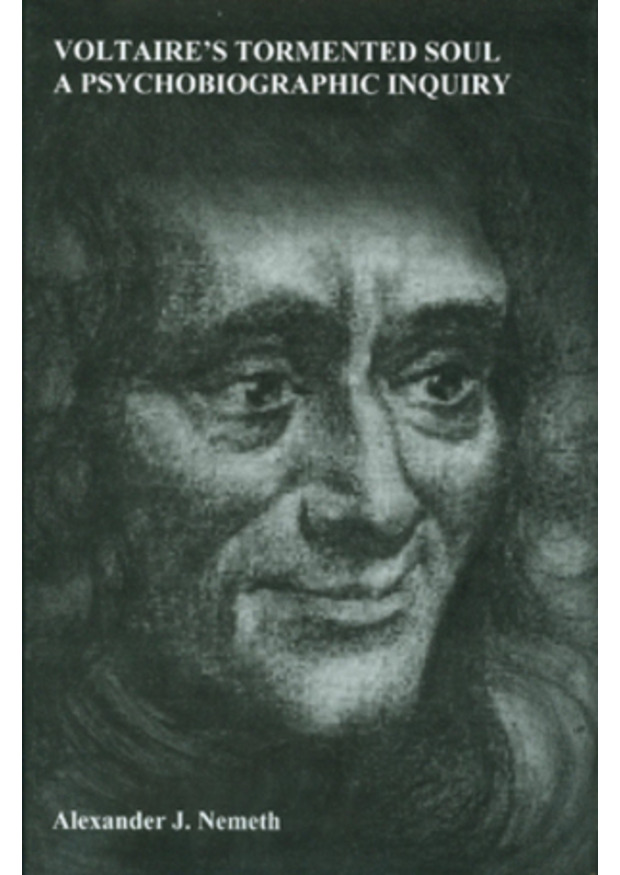A Psychobiographic Inquiry
The historic giant of the Enlightenment, Voltaire, has attracted the attention of literary critics, historians, and philosophers for over two centuries. The products of his brilliant mind, collected in over seventy volumes, have been scrutinized in a plethora of literary essays, while his extraordinarily eventful life has become the subject of a score of biographies. But the roots of perplexing inconsistencies both in behavioral conduct and in some of his writings run deeper than the ground generally plowed by literary critics or historians. Constructs for understanding the layered mechanisms of personality (and the methods appropriate for their investigation as developed in the social/behavioral sciences) became necessary. Fortunately, ample material for such an inquiry is available: the poet's vast, emotion-laden correspondence; observations of behavioral peculiarities by friends and chroniclers of the time (crossverifiable, due to multiple sources); the highly expressive imagery of his poetry and prose, the contes in particular; and his Memoirs.
The findings, in essence, reveal a person of dual identity, with unconscious forces playing a prominent role and holding the key to Voltaire's paradoxical character. His conscious, rational, and cognitively astute self--the standard-bearer of the philosophies in their epochal struggle for freedom--was also responsible for sealing off the subconscious portion of the self associated with traumatic experiences. The elaborate characterological structure erected to ward off consciously unacceptable impulses and, simultaneously, to obtain satisfaction of frustrated needs, is the subject of this study. The price he had to pay for the drastic disconnect between the two selves was formidable. In this volume, much attention is devoted to the unconventional ways and phantasmal stratagems adopted for dealing with the internal pressure of repressed impulses and a perpetual quest for affectional support. Some of these maneuvers show tenuous contact with social reality, as do his bizarre psychosomatic symptoms and bold rationalizations in his Memoirs.
Fortunately for the western world, Voltaire's prodigious mind was put to use in rattling the cage of the intolerant and rigidly backward theocratic/political system. Due to his immense popularity as a playwright, and his agile participation in current events through a flood of pamphlets, leaflets, and occasional pieces, together with the gigantic volume and engaging style of his correspondence, the name Voltaire became synonymous with the Age of Enlightenment. The dual identity did not interfere with his effectiveness as a humanist. In fact, there is reason to believe that the energy invested in fighting l'infãme, the oppressive authority of Church and State, was augmented by a dynamic driving force of the hidden self: the never verbalized and consciously never processed bitter resentment of paternal coercion. Principles and methods of depth psychology, as applied in the study, are elucidated and illustrated.













